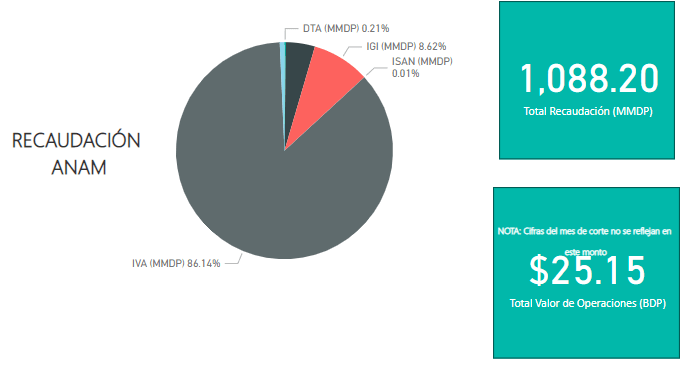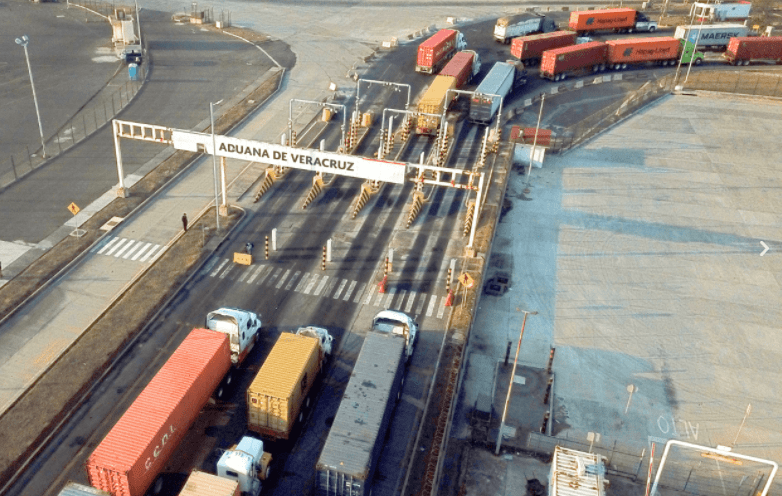Mexico’s National Customs Agency (ANAM) reported that Mexico’s foreign trade collection was 1 trillion 088,200 million pesos in 2022.
Likewise, the value of the country’s foreign trade operations totaled 25 trillion 154,500 million pesos last year, an increase of 14.8%, at annual rate.
Finally, 20.7 million foreign trade operations were carried out, an increase of 3.8% year-on-year.

Mexico is undergoing a profound transformation of its customs environment.
In January 2022, this ANAM agency was created as a decentralized body of the Ministry of Finance and Public Credit.
According to the federal government, this change was accompanied by a reassessment of the customs system, giving it a central place in Mexico‘s public agenda.
This materialized as a rethinking of the Mexican customs system that seeks to improve it for the good of all parties and involves better business practices, greater security and coordination with public agencies both nationally and internationally.
ANAM is a leading customs office in the Latin American and Caribbean region, not only because of the high level of digitalization it has implemented, but also because of its relationship with the world.
ANAM
From the federal government’s perspective, the Mexican State today has high technology in specialized fixed and portable non-intrusive inspection equipment, as well as highly qualified personnel in the field.
The use of this non-intrusive technology is one of the tools employed by ANAM as part of its efforts to increase security in the supply chain, thereby complying with the Framework of Standards to Secure and Facilitate Global Trade issued by the World Customs Organization.
With this, ANAM contributes to strengthening security, not only nationally but also internationally, allowing the flow of trade to other countries to flow in an agile, secure and expeditious manner, preventing illegal trade and protecting our borders from the illicit trafficking of sensitive materials.
The federal government also believes it is appropriate to point out that, through the National Trade Facilitation Committee, which it instituted in March 2021, it is analyzing the difficulties faced by economic operators in order to seek solutions and alternatives that facilitate trade flows and decrease administrative burdens through the elimination of redundant or unnecessary requirements, without jeopardizing the control of goods.
![]()

